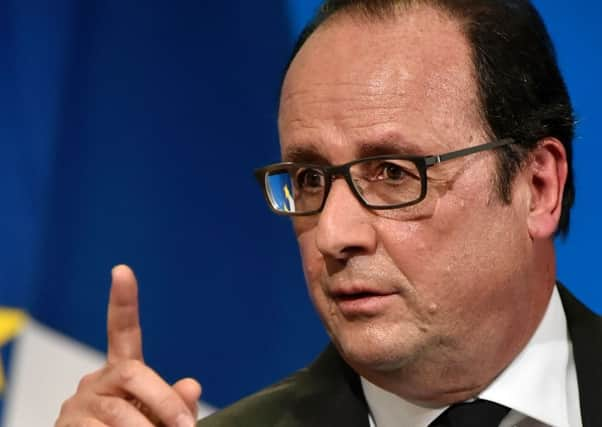Hollande declares '˜state of social and economic emergency'


The measures he proposed, however, are relatively modest, and he said they would not “put into question” the 35-hour work week. With his country under a state of emergency since extremist attacks in November, Mr Hollande did not seek to assume any new emergency powers over the economy.
In an annual speech to business leaders, Mr Hollande laid out plans for training half a million jobless workers, greater use of apprenticeships, and aid for companies that hire young workers.
Advertisement
Hide AdAdvertisement
Hide AdMr Hollande’s socialist government has struggled to boost long-stagnant French growth or reduce chronic unemployment, which has been around 10 per cent for years. His chances of winning a potential second term may hinge on whether jobs pick up before next year’s presidential vote.
Mr Hollande stressed the urgency of updating France’s labour-friendly business model in an increasingly border-free, online economy. The measures included a loosening of France’s rigid working time rules, and a bonus of €2,000 to small businesses that hire young people.
He stressed the need to integrate youth from France’s troubled suburbs, including minorities who face job discrimination, into the global economy. High unemployment in France’s North African and African communities is seen as one of the factors driving some youths to violent extremism or the drug trade.
Some measures will be included in draft economic reform laws the government is presenting to parliament in the coming weeks. “We have to act so that growth becomes more robust and job creation more abundant,” Mr Hollande said in an address to unions and business leaders.
“Our country has been facing structural unemployment for too long and it needs to reform.”
Since 2012, when Mr Hollande came to power, more than 600,000 people have joined the ranks of the unemployed at a time when joblessness has decreased in most of the other large European economies.
The jobless rate in France is above 10 per cent against a 9.8 per cent EU average.